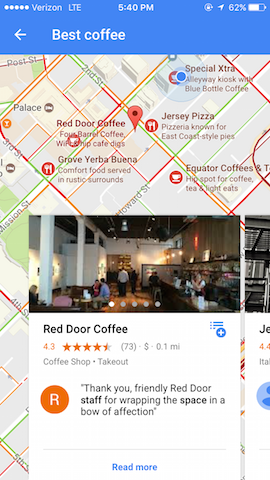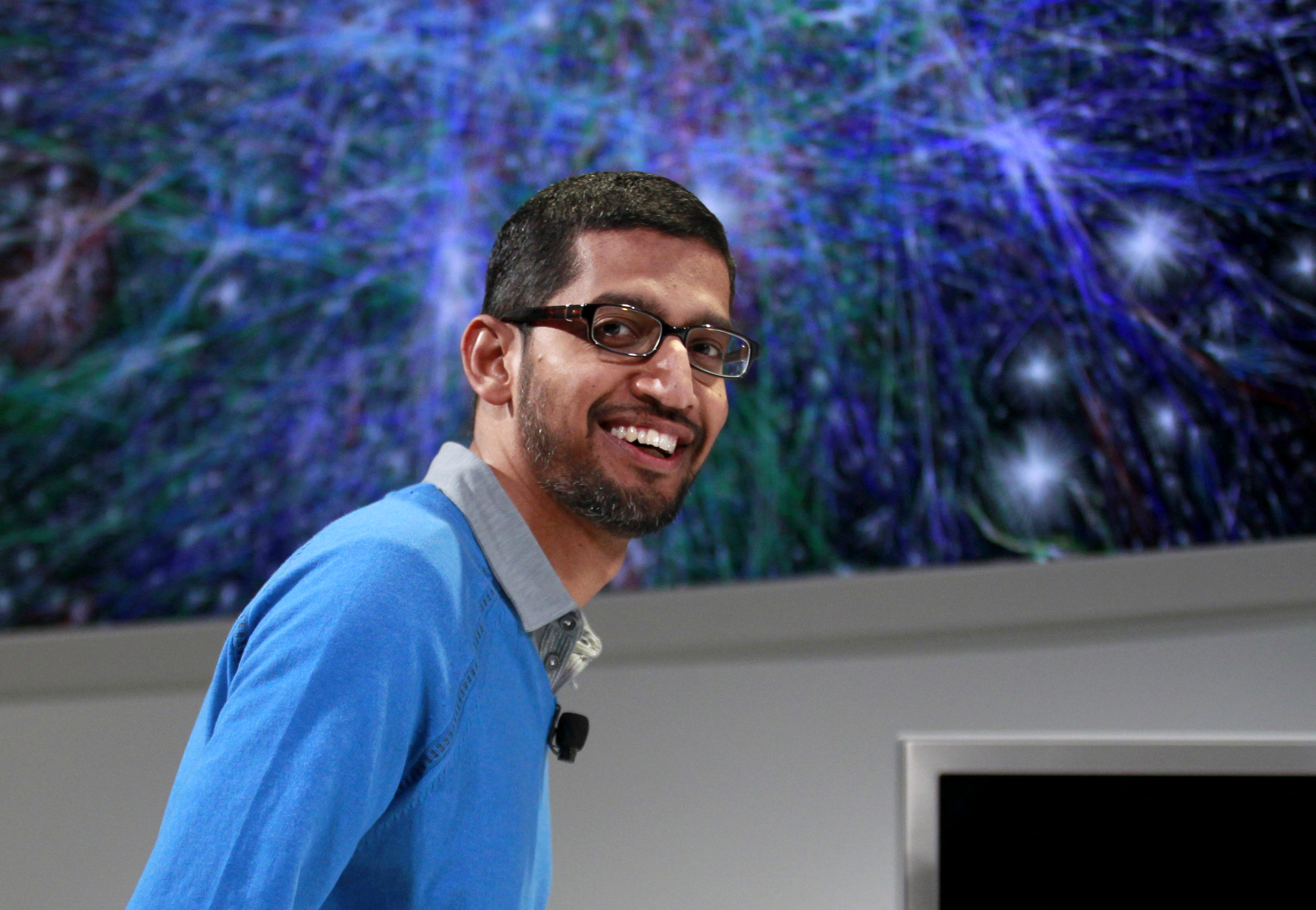Google Maps is one of the company’s most popular services, but when it comes to bringing in revenue, Maps is not pulling its weight.
That’s by design – Google admits it has been slow to monetize the app.
“We take a long term view,” Google CEO Sundar Pichai told a Wall Street analyst who inquired about potential plans to turn Maps into a more significant moneymaker during the company’s Q1 earnings call on Thursday.
Pichai noted that Maps was still seeing strong user growth, even years after its initial launch, thanks to the spread of smartphones in emerging markets. Maps is “an integral” part of the mobile phone, he noted. And with the rise of new technologies like augmented reality, which overlays digital images onto the real world, maps will play a bigger role, he said.
So what about the money?
Pichai didn’t provide an explicit answer about plans for monetizing maps, but his comments give a pretty good sense of what the company might have in mind:
"I'm sure you have noticed changes in Google Maps with the last few months. If you open Google Maps, you're traveling or out on a Friday evening, we start surfacing a lot more info about what you can do, places to eat and so on. So those are beginning to get good feedback from users and I think that gives us an opportunity to add value there overtime as well."

The two key terms here are "good feedback" and "add value." That's the core philosophy behind all of Google's advertising business.
Google loves to talk about how its ads are actually useful to consumers rather than annoying distractions. In the case of search ads, that attitude has helped build a company valued at $610 billion.
So if Google believes its Maps users are already enjoying getting recommendations about nearby restaurants and attractions in the app, it's probably only a matter of time before Google gives businesses the "opportunity" to participate as well.
No one wants their phone to be bombarded with unsolicited and intrusive coupons and promotional offers for every retail store they walk past on the street. But if you're already searching and exploring for nearby places in the Maps app, Google could easily toss in a few promoted places or coupons to its current recommendations - or turn it into an ad platform of its own.
Pichai's comments show the company clearly sees a place for ads in Maps. It's just a question of when Google is ready to flip the switch.

